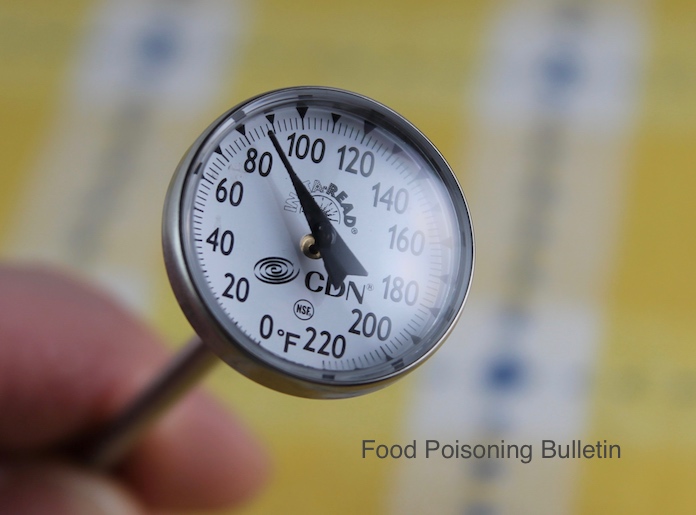The USDA is offering Super Bowl food safety tips. There are things to think about if you are hosting a party for the big game. Start with party prep, and learn about serving food and what to do when the party is over.

First, wash your hands well with soap and water immediately before and after handling food. A recent USDA Food Safety Consumer Research Project study showed that 99% of handwashing attempts were not done correctly. So, wet your hands with water, lather with soap, and scrub for 20 seconds. Remember to clean under your fingernails too. Rinse and dry with a paper towel or clean towel.
Always use a food thermometer when cooking meat, fish, poultry, and egg. Make sure that foods reach a safe final internal temperature when you’re cooking (use this chart), and always reheat leftovers to 165°F. Heating until steaming hot or bubbling isn’t a good indicator that a food is safe to eat.
If you are planning to serve food throughout the game, it’s a good idea to make two batches of each recipe. Serve one at the beginning of your party, then after two hours, set out the other half. This way perishable food that is susceptible to contamination is not out of refrigeration or the oven for more than 2 hours.
Pack leftovers in small portions in shallow containers and put them into the fridge or freezer immediately. Throw away any food that has been out for more than two hours. Remember that the danger zone for bacterial growth it 40°F to 140°F.
These Super Bowl food safety tips are also appropriate for everyday cooking. And remember if you have questions about food safety, you can call the USDA Meat and Poultry Hotline at 1-888-674-6854 Monday through Friday from 10:00 am to 6:00 pm Eastern time. You can also chat with an expert at Ask USDA.




